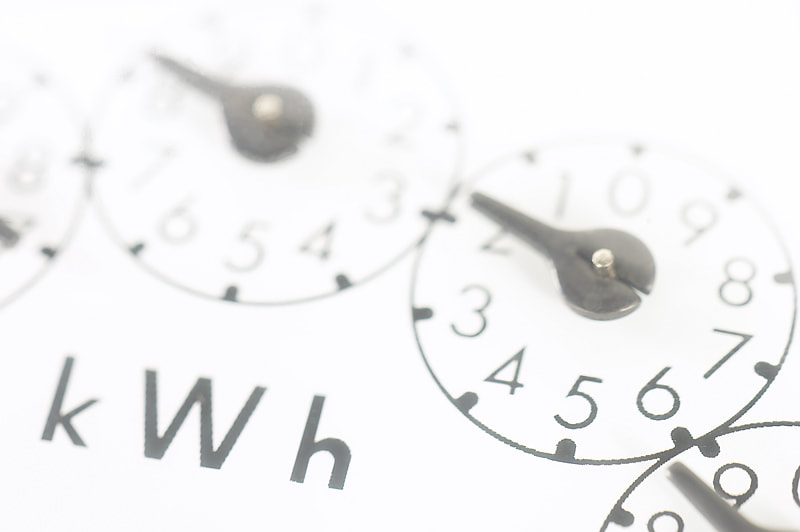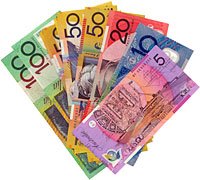|
I had the pleasure this afternoon to chat for a few minutes with Darren James who was hosting Afternoons with Dennis Walter on radio 3AW here in Melbourne.
I was thrilled to be able to talk about everyday things that are overpriced. Darren mentioned hairdressing and I agree, hairdressing can be very expensive. I get my hair cut and dried at a local salon for just $27 and in all the years I've been going there I've only been unhappy twice. Thankfully my hair grows very quickly so I wasn't sad for too long. He also mentioned parking and I agree with him there too. Parking fees are outrageous. Whether it is in the city or at the airport or even our local hospital parking can eat up a huge chunk of your daily budget. I've had reason to visit Box Hill Hospital here in Melbourne weekly for the last couple of months and the parking was sending me broke - $7 minimum each visit. These days I get dropped off and just call when I'm ready to be picked up. My chauffeur brings a book and a drink and parks a few streets away, where it's not only free but far less congested. I mentioned bottled water. Everyone who knows me knows how I feel about paying for water in a plastic bottle. We have a very cheap, clean and safe water supply here in Australia so buying bottled water is a complete waste of money. Tap water costs you just one tenth of one cent per litre. Bottled water can cost over $5 per litre! Fill your water bottles from your kitchen tap and you'll save around $844 a year. For my family that's almost three months' grocery money. It's 15 months of mobile phone access for Wayne, Hannah and me. $844 is 21 weeks of petrol for my car (I budget and use around $40 a week at current prices of $1.44.9/l). And if those figures don't convince you think about this: we pay $1.45 or more per litre for petrol and whinge and whine about it, while we pay three, four or more times that price per litre for water and gloat because we're drinking plain water! Bottled water is not just expensive, the cost truly is outrageous. Coffee pods are another thing that are very expensive. Aldi pods are $5.99 for 128g or $4.67/100g. I can buy coffee beans from Coles and grind my own coffee for a fraction of the price. Coles Fair Trade coffee beans are the cheapest at just $1.30 per hundred grams. My favourite Lavazza beans cost $3.37 per hundred grams, almost half the pod price, off the shelf and less than half price when they are on sale. And if you're not convinced or really love your pods, you can refill them with your own ground coffee. I'll post a How To later in the week showing you how, but it is really easy. So many of the things we buy are overpriced and yet we still buy them. We may be aware they are overpriced and we may grumble and moan about the cost but we still buy them. We don’t have to. We can stop using those products. We can find MOOs to replace them. We can look for cheaper, better value alternatives. We don't need to be swept up in the advertising hype that has us believing that only those over-priced products will make us happy. What outrageously priced items do you buy? What outrageously overpriced items do you leave on the shelf because you've found a cheaper alternative? From Debt Free, Cashed Up and Laughing
0 Comments
From mid-September the way electricity in Victoria will be priced is changing. There will be peak, off-peak and shoulder periods and the price will vary according to the time of day, and the day of the week, with the busiest part of most people's day being of course the most expensive. And so I have been thinking.
The off-peak rate runs from 10pm - 7am. This will be the cheapest rate for electricity. I don't know about you but I'm not that keen on staying up at night to do the washing and the floors, and running the dishwasher when the rest of the family is trying to sleep just won't work in our household. Electricity prices are on the rise. It's a catch 22 situation because our reliance on electricity is also on the rise. Almost every appliance in our homes is electric: stoves and ovens, microwave ovens, kettles, food processors, mixers, toasters, sandwich makers, bread makers, washing machines, irons, clock radios, hair dryers, toothbrushes, shavers, heaters, air conditioners, vacuum cleaners, computers, lighting and the list goes on. Many of those appliances have a non-electric version that we could just as easily use, but we've been brain-washed into thinking they are too hard to use or too old-fashioned. They're not! And they slash power use. And that slashes the power bill, saving us all money. I've been curious as to just how much we use electricity because we have it at the flick of a switch, because it's too convenient. In August I put out a challenge to Cheapskates Club members: could they live for 48 hours with access to just 3 hours of electricity a day? The challenge was accepted and the results were interesting. Overall most households managed with a few lifestyle modifications. They all said they wouldn't want to have to live with such limited power forever. So do you think you can live with access to just three hours of electricity a day? Are you prepared to accept the challenge and see if you really can cut your electricity use and slash that bill without compromising your lifestyle? Are you up to the challenge? Just two days, 48 hours, and you can choose the days, to try living with access to electricity for just three hours a day. The rules are simple and more guidelines than rules. You can: 1. Commit to the challenge by leaving a comment below agreeing to participate in the challenge. 2. Spread the word. Talk about it, email it to your family and friends, blog and tweet about it. Encourage as many people as you can to take part. 3. Use whatever appliances you need to during the 3 hours of allowed power time. You could have the TV and every light in the house on if you need too (an extreme example). 4. Break the three hours up any way you want, but once the time is up that's it - no more electricity for the day. We chose 45 minutes in the morning and 2-1/4 hours of an evening. 5. You can use battery powered appliances out of hours. 6. You can use any appliances during the "on" hours. You can't: 1. Use any appliance that requires a power point or light switch during the 21 hours a day you can't access power, the exceptions being fridges and freezers, wired in smoke detectors and any medical aides that must be used (nebulizers, ventilators etc.). I'd like you to keep a diary for the 48 hours, recording what you used and what you found you didn't really need to use, the things you missed, how you filled in TV time if you normally watch TV, how the family filled in the evening without power or lights etc. whether or not you were able to stick to the three hours or just found it unrealistic or impossible, and record the actual amount of power you used in total over the six hours. You can add your diary notes and ask any questions in the comments below. From Debt Free, Cashed Up and Laughing Living on a budget is the key to financial freedom, but getting started can be frustrating. When we look at our expenses and see all of those bills we're paying every month, it's easy to throw our hands up in disgust. But what about all those little expenses we incur? You might be surprised to find out just how much they amount to.
It's easy to dismiss cutting back on little things. A few dollars a month won't make a significant difference in the big picture. But a few dollars here and a few dollars there adds up to a few more dollars. When you cut back in a lot of small ways, you could end up with a lot more money at the end of the month. From Debt Free, Cashed Up and Laughing Finances have a knack for becoming complicated. You want so badly to have a workable Spending Plan, one that is accurate so you are confident that you will be able to live below your means. You add in every little expense you can find and spend hours fine-tuning your income and expenditure columns, adding and subtracting and balancing until the figures dance before your eyes and you have pages and pages of columns and graphs. And you give up in despair because it's just too hard to use.
Stop! You can have a workable and accurate Spending Plan. Making your Spending Plan as simple as possible will allow you to get a better handle on your finances so that you can focus on matters that are more important. Simplifying your Spending Plan can have positive effects on all aspects of your finances by helping you keep everything under control. Stressing out over your finances is a waste of your time, so rein them in today with a simpler, easier to manage budget. Follow these strategies to make your Spending Plan easy, workable, and effective: 1. Start with a simple spreadsheet Keeping things in a spreadsheet can simplify your budget significantly. Set it up however you like or download our Simple Spending Plan template, it's under "Tools and Guides" on the Printables page. It's easy, uncomplicated and yes, simple. Or you can search for a free template for Excel or Google Docs; just choose something that works for you. 2. Devote 60% to your expenses The 60% Solution is a budget strategy that entails fitting your expenses into 60% of your gross income so that you can dedicate the remaining 40% to debt repayment, short-term and long-term savings, giving and fun or entertainment expenses. 3. Devote 10% to giving Put 10% of your gross income toward your favourite charity, church, school - you decide, but give. If you've never given before it will be hard at first. I am often asked why this is important, especially if you have debt or don't have an Emergency Fund. Refrain from touching this money for any purpose unless the circumstances are dire. 4. Devote 10% to debt repayment Use the Payment Push if you have more than one debt to get your debts paid down quickly. This money is for debt repayment, so make sure it is gone as soon as it hits your bank account and you won't be tempted to spend it, or accidentally use it for something else. You can set up a direct debit to your debt accounts easily to make sure your debt money goes to debt. 5. Devote 10% to building your savings This money is for building your Emergency Fund. Aim for $1,000 to start, then keep on saving until you have at least six months living expenses. When you have that six months of living expenses saved, you can stop saving and add that money to your debt repayment. But once all your debt is cleared, start saving again and aim for at least twelve months of living expenses saved in an easy to access account. Spend this money when you need it, because that is precisely what you're saving it for. 6. Devote 10% to your "fun money" Everyone in the family needs to be able to enjoy a treat now and then, or buy something they want that isn't a part of the regular household spending. You can spend this money in any manner that pleases you. This is guilt-free money that you can spend on movies, entertainment, eating out, comic books, junk food or anything else that you wish. 7. Reduce the number of categories you use This is a biggie, and the thing that over-complicates and over-whelms so many new Cheapskaters. Many budget software programs instruct you to use a million different categories or subcategories. If you want to simplify your budget, use as few as you can. Rather than having a category for every entry, combine some expenses into a larger category to keep it simple. Download our Simple Monthly Spending Plan and use it - it is simple, easy to use and it works! 8. Pay your bills online Automate your bill payments as much as possible so that you don't have to remember to pay your bills every month. Consider automatic bank withdrawals and pay bills online through automatic debit whenever you can. 9. Automate your savings Every time your pay is deposited into your account, have a transaction scheduled that will transfer a specific amount into your savings from your checking. Aim to find a high-yield savings account for this purpose. 10. Keep your fun money in cash form Take out your 10%, keep it in cash, and use it as you see fit. Watching the cash disappear from your wallet can actually teach you a lot about where the money goes. If you investigate, you'll find plenty of ways to simplify your budget. Do what works well for you and your family. Avoid struggling with a new budget plan because you think it must be better. If it isn't actually helping you budget, then it's not the "better" option for your needs. Sometimes simpler is more effective. |
Archives
April 2020
Categories
All
|




 RSS Feed
RSS Feed